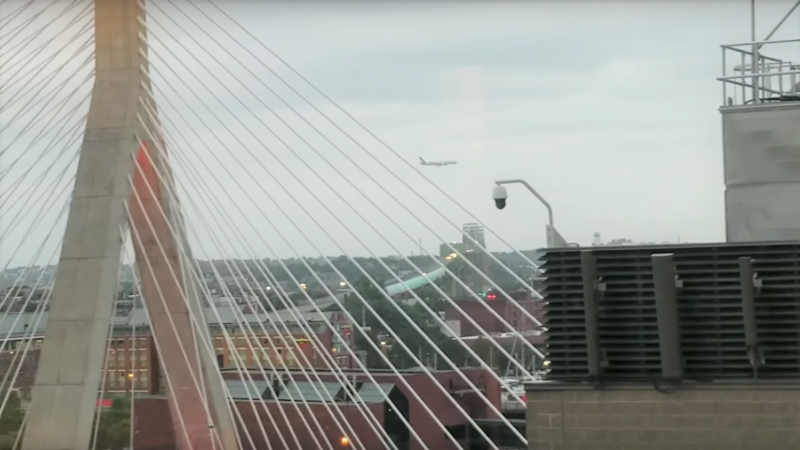We’ve all probably done it — gazed up at a passing jetliner and wondered where it was going and what adventures its passengers were embarked upon. While the latter is hard to answer, the former just got a bit easier: just ask Alexa what the plane is.
Granted, [Nick Sypteras]’s Echo Dot isn’t quite omniscient enough to know exactly what plane you’re looking at. His system benefits from the constraints offered by the window of his Boston apartment — from the video below, we’d guess somewhere in Beacon Hill or the West End — that offers a view of the approach to Logan Airport. An RTL-SDR dongle receives the ADS-B transmissions from all aircraft in the vicinity, and a Raspberry Pi does a lookup, picks the closest plane, and scrapes the departure and arrival airports from FlightRadar24. Alexa does the rest, but we have to confess that hearing “Boeing seven hundred eighty-seven” rather than “seven eighty-seven” would drive us nuts.
If you don’t have the limited view of an airport approach that makes [Nick]’s hack workable, maybe a plane-spotting robot camera would work better for you.
[via RTL-SDR.com]
















Even without doing a RTL scan on 1090mhz for ADS-B you can get augmented reality apps which use magnetic and angle sensors combined with GPS to get you the ADS-B info on an airplane you see.
Then you can pull the seating assignment from most airlines to see who is on that plane, what the purpose of their flight is for though is still unknown unless you also grab social media of those seat assignments, you might get lucky on an overshare.
I need to make a remote gadget; a RTL-SDR–>Pi–> bluetooth serial to my tablet my tablet to use for local area ‘radar’ when flying around in a little Cessna. Everything is pretty plug and compile for the Pi but getting dump1090 to run on a cyanogen tablet is a bit more difficult considering android!=gnu-linux but there are not even blob drivers for all devices on the tablet which work with mainline linux kernels.
You can pull the seat assignments from airlines WITH NAMES? I thought that was private information.
I call shenanigans.
This is cool! With such ease for the user, but with so many things that need to happen (from a technical point of view), but they all happen and within in a more then acceptable delay, wow. Technology at it’s best.
Fool: Alexa, what’s the problem?
Alexa: YOU’RE THE PROBLEM
I’d pronounce it “Boeing seven *eight* seven”, not eighty.
A library needs to be created for speech synthesys that can differentiate between the need for “seven hundred eighty seven”, “seven eight seven”, and “seven eighty seven”.